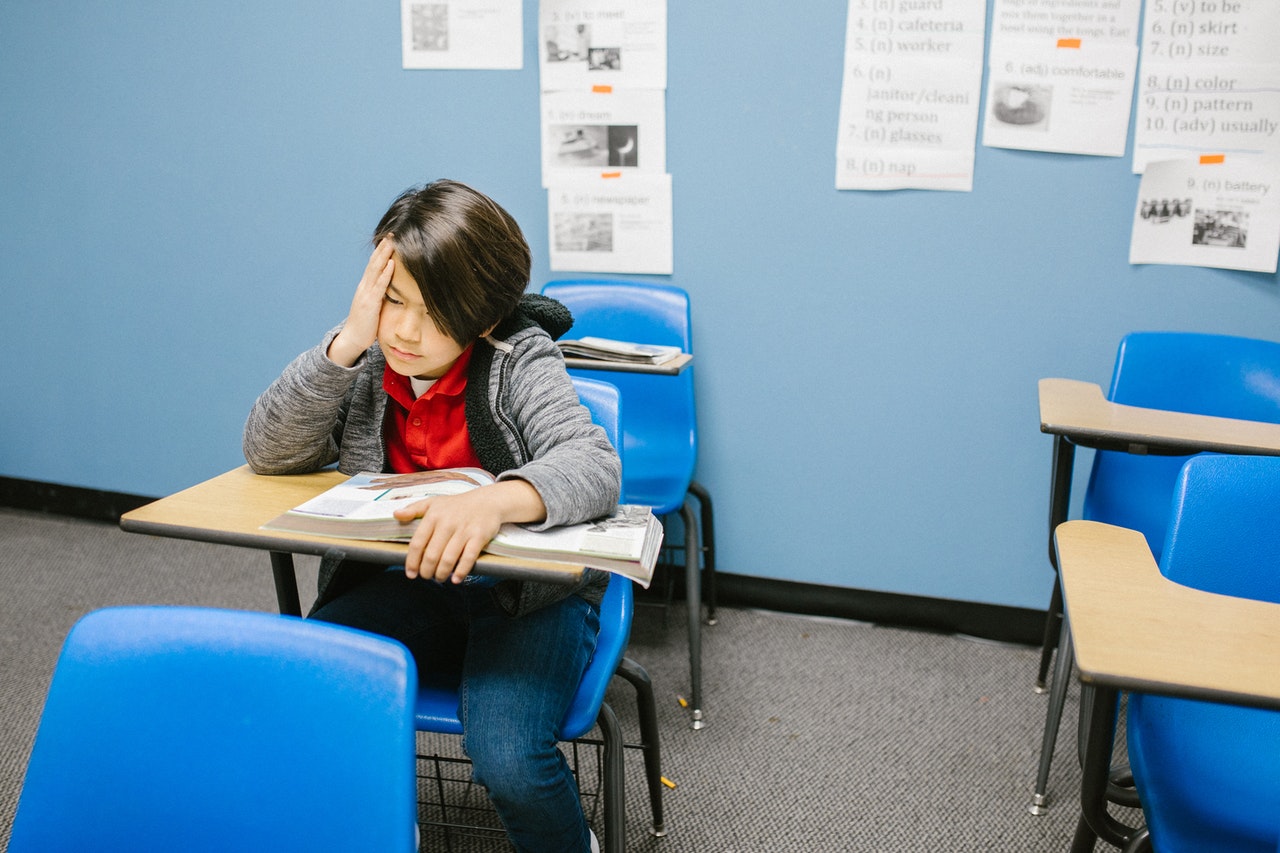-
No Comments
-
admin
-
June 8, 2022
Just like with adults, children experience natural peaks and troughs in their mental health, outlook and productivity. However, parents should keep an eye on any behavioural changes that seem prolonged or out of the ordinary as it could be a sign that there is something else going on that’s impacting your child’s mood and perspective.
So much of a child’s day is spent at school and engaging in school tasks, so if they are academically struggling at school, this is likely to have a big impact on their attitude, confidence and even their health. Being stressed and overwhelmed by your school experience can bring up feelings of embarrassment and failure, so students will often be reluctant to communicate how they are feeling to parents and teachers. Looking out for signs that your child is anxious about school and may need support can give you the time to implement new strategies before the situation escalates and becomes more difficult.
Here are 8 markers to look out for if you feel your child may be finding school life challenging:
- Becoming Withdrawn: Your child is consistently becoming more withdrawn; less chatty, no longer engaging with the activities that usually bring them joy, and they are spending more time alone.
- Increasingly Angry and Irritable: Discomfort and being overwhelmed can often cause children to get defensive; resorting to yelling or becoming irritable quickly as they struggle to work through uncomfortable feelings.
- Emotional Outbursts: Being quick to get upset, suddenly bursting into tears with little reason or having emotions that seem ‘bigger’ than usual.
- Hyperactivity: While some people respond to feeling overwhelmed or challenged by shutting down, others can see an increase in nervous energy! If they are finding school stifling or are sifting through a lot of complex thoughts and emotions, the response may be hyperactivity: talking fast, having more exaggerated gestures and an increase in physical activity.
- Misbehaving at School or Home: Breaking school rules or becoming a distraction in the classroom can be a way for students to take the attention off their academic challenges, or serve as an outlet for their frustration. Struggling to complete work can make it really difficult to engage with the task, so it’s natural to lose focus and act out! Misbehaving is often a strong indicator that there is something else that needs attention.
- Spending Excessive Time on Homework: When hours each night are spent sitting at a desk pouring over content from school, or working on homework tasks, that is often an indicator that the student is struggling with the content and may need support. Schools (particularly at primary level) tend to assign quite minimal homework, perhaps just a few worksheets to reinforce a topic they have covered. If it taking a long time for the student to progress through the activity, that can be a sign they are stressed and haven’t been able to grasp the topic in class. It’s worth communicating with the school to make sure you are aware of the time they expect homework tasks to take, so you can identify if your child is working within that time expectation.
- Complaining that School is Boring:
When students who are usually quite engaged start to express that they are finding school boring, the assumption can often be that the content is being taught in a dry way, or that the student is excelling and not being challenged. However, this isn’t always the case – sometimes finding the work boring can be an indicator that, rather than flying through it with ease, the student is actually finding the work too challenging, and the slow progress and confusion completely disengages them.
- Physical Signs of Illness:
Stress and anxiety can have a physical impact on our bodies, so regular complaints of stomach aches, nausea, headaches or fatigue can be symptoms of the heightened anxiety caused by struggling at school. If no medical cause for symptoms can be found, looking into their relationship to school can help determine if stress is making them ill.
How You Can Help
If you do feel your child is experiencing an attitude shift about school and education, the first step is to seek some feedback on their progress and time in the classroom. Looking over the work they are bringing home to see if they are managing to complete it, and then asking for some additional feedback from their classroom teacher should be the first port of call.
If there is a concern, work with the school to develop an action plan and see what supports can be in put place, both in the class and at home. They may recommend the support of a tutor, in which case it’s important to ask them for as much information as possible to pass on to that tutor so the sessions can be tailored specifically to the areas that require some extra attention.
It’s of course important to consider if the issue is simply a gap in knowledge causing them to fall a bit behind, or if there is a potential need for the intervention of a professional due to a learning disability, or if other more specialised supports are necessary. We will be exploring some of these specialist support options and how to identify if they are relevant to your child in the coming months!
Additional Resources:
https://mybraveguide.com/2020/09/14/overwhelmed-child/
https://www.verywellfamily.com/warning-signs-your-child-is-struggling-in-school-2601436
https://developingminds.net.au/articles-for-professionals/2017/5/21/helping-kids-deal-with-negative-emotions-in-the-classroom
